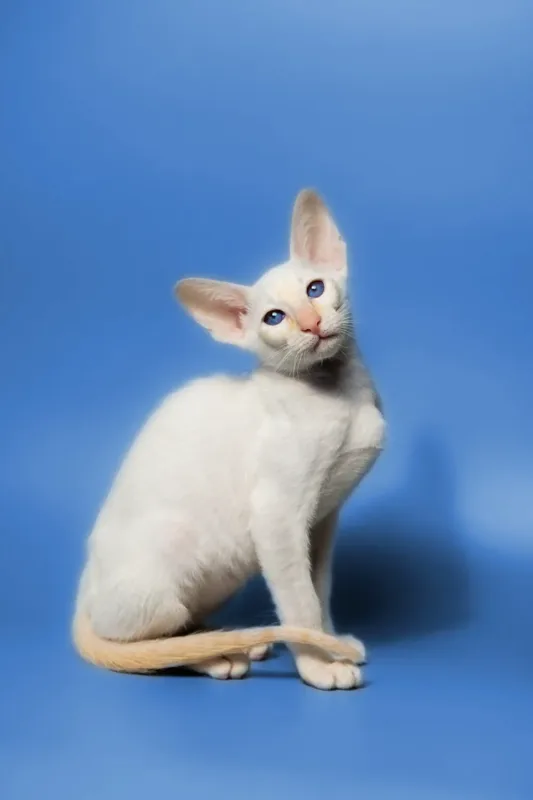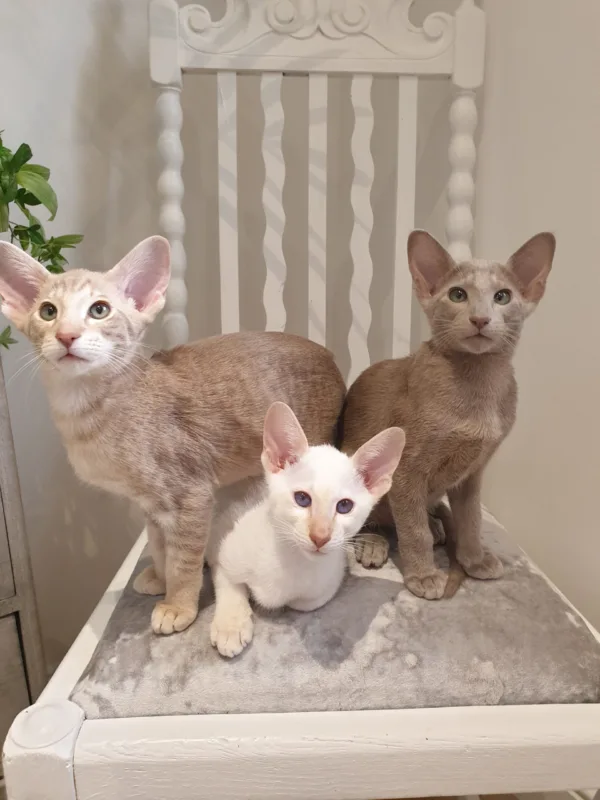Diet and Nutrition
Maintaining a balanced diet is essential for the health of your Oriental kitten. It’s recommended to provide them with high-quality, age-appropriate food that meets their nutritional needs. Wet food is beneficial as it can help prevent urinary tract issues, which Orientals may be prone to. Avoid feeding them table scraps or human food, as it can lead to digestive problems and weight gain.
Grooming
Oriental kittens have short, silky coats that require minimal grooming. While they don’t need extensive brushing, regular brushing can help reduce shedding and keep their coat looking sleek. Additionally, keep their claws trimmed and teeth clean to promote good oral health.
Veterinary Care
Regular veterinary check-ups are essential to ensure the well-being of your Oriental kitten. While Orientals are generally healthy, they may be susceptible to certain conditions such as dental issues and amyloidosis. Stay up-to-date with their vaccinations, deworming, and flea treatments to protect them from common diseases and parasites.
Play and Interaction
Oriental kittens are intelligent and sociable, thriving on human interaction. Engage them in daily play sessions using interactive toys, such as feather wands or puzzle toys. This not only provides mental stimulation but also strengthens your bond with your kitten.
Hygiene
Maintaining proper hygiene is important for the health and well-being of your Oriental kitten. Regularly groom their coat to keep it clean and free from mats or tangles. While Oriental kittens generally don’t require frequent baths, if necessary, use cat-specific shampoo and warm water for a gentle and thorough clean.
Litter Training
Litter training is an essential aspect of raising an Oriental kitten. Choose a litter that your kitten prefers and provide multiple litter boxes in different areas of your home. This allows for easy access and reduces the chances of accidents. Use positive reinforcement by rewarding your kitten when they use the litter box correctly, which encourages good litter box habits.
By following these guidelines, you can ensure that your Oriental kitten receives proper care and attention, leading to a healthy and happy life. Remember to shower them with love and provide them with a stimulating environment to thrive in.




